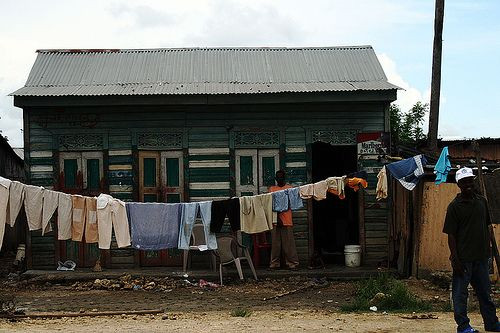Poverty Lowers IQ: How Financial Strains Put Pressure On Cognitive, Logical Reasoning

When your brain is bombarded with multiple tasks, all demanding your attention, dedicating hard thought to just one becomes effortful. For those living in poverty, financial decisions can be particularly taxing and, according to new research, even lower your IQ.
While measuring one’s IQ (intelligence quotient) is a slippery test in the world of psychology, due most in part to unclear standards of “intelligence,” researchers from Harvard, Princeton, other universities in North America, and Britain's University of Warwick reveal that when impoverished people are asked to make a tough financial decision, their cognitive function diminishes — limiting, as the researchers wrote, their “mental bandwidth.”
How Poverty Strains The Brain
Sociologists and social psychologists have known for years that poverty and education level — and arguably, intelligence, despite a foggy definition — are related. The correlation has held steady for decades — that as one’s education decreases, one's level of poverty often goes up. The team’s study examined a different relationship, said Jiaying Zhao, assistant professor of psychology at the University of British Columbia in Canada.
"Previous views of poverty have blamed (it) on personal failings, on an environment that is not conducive to success," Zhao told Reuters. "We are arguing that the lack of financial resources itself can lead to impaired cognitive function.”
To test their theory, the researchers performed a comparative study on two different continents, in two distinct settings. The first group consisted of 400 low- and middle-income shoppers ($20,000-$70,000 annual income) at a New Jersey mall in the United States. The second was comprised of 464 Indian sugar cane farmers, whose personal wealth had direct ties to how recently they had harvested their crops.
Mall shoppers were faced with one of two financial decisions — their car broke down and repairs either cost $150 or $1,500 — before being subjected to IQ tests and measures of impulse control. Similar data was taken from the Indian farmers, who took IQ tests before and after their harvest, effectively while they were poor and then rich.
"Our results suggest that when you are poor, money is not the only thing in short supply,” said Harvard economist Sendhil Mullainathan, who was part of the international team conducting the study. “Cognitive capacity is also stretched thin.”
Among New Jersey mall shoppers, IQ fell a full 13 points when researchers tasked them with a difficult financial decision, a cognitive impairment roughly equivalent to losing a full night of sleep. Farmers saw a nine to 10 point difference from one month to the next.
"One month after the harvest, they're pretty rich, but the month before - when the money has run out - they're pretty poor," Mullainathan noted in the report, which was published on Thursday in the journal Science. "What we see is that IQ goes up, (when they are rich)... errors go way down, and response times go way down."
Solving Problems Greater Than Money
These effects stem from a person’s inability to devote mental resources to a collection of smaller issues, when larger challenges stand in the way. The solution, then, isn’t necessarily financial assistance, the researchers noted. Even though people in poverty could benefit from it, more cash doesn’t erase the daily struggles included in such a life. Relieving more specific needs, such as child care, could produce greater benefit among the working poor.
“These pressures create a salient concern in the mind and draw mental resources to the problem itself,” said Zhao. “This means we are unable to focus on other things in life that need our attention.”
Mullainathan echoed his colleague's sentiments, adding that money alone is not what’s causing such mental strain for people in poverty. Money is merely a tool, in other words, that can help solve larger problems.
“Rather than simply looking at these challenges as a lack of money very broadly, if we could break it up and simply target the biggest concerns and deal with them,” he said, “we might begin to solve other problems as well.”
Source: Mani A, Mullainathan S, Shafir E, Zhao J. Poverty Impeded Cognitive Function. Science. 2013.



























